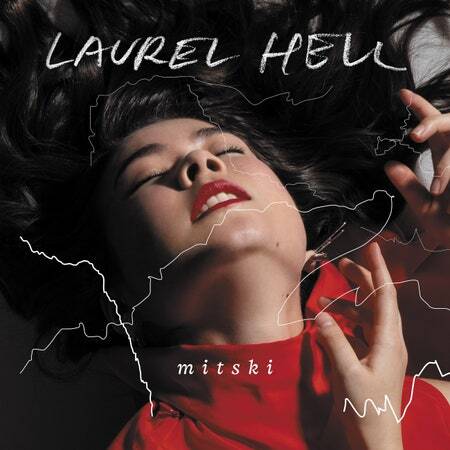
After almost quitting the music business, Mitski returns to the scene. In the past, Mitski has evoked a powerful feeling to her music that sets it apart from the rest of the indie rock genre. The intimacy and angst of albums such as “Puberty 2” and “Bury Me At Makeout Creek” reeled listeners in with such honest songwriting and visceral sonic textures. In the summer of 2018, “Be the Cowboy” was released and changed everything for her career. Unlike her previous records, the songwriting transitioned to less personal tracks and instead was playing from the perspective of a married woman character. It also sounded cleaner and more sentimental than before, but fans old and new were pleased. Songs like “Washing Machine Heart” and “Nobody” became hits and led to the hype building for her next project. The fame became so much for her that she almost quit music for good until going back on that decision later on. The Japanese American singer-songwriter found her way into listeners’ hearts with beautiful arrangements and pure artistic sensibilities, but has her return held up to that standard?
Mitski always keeps things interesting, and there is never a dull moment on “Laurel Hell.” With the songwriting returning back to the perspective of Mitski herself, the album dwells on themes of relationships and fame. Her lyrics are extremely relatable, like in the lead single “Working for the Knife,” a song describing being a grown-up, where she sings, “I always knew the world moves on / I just didn’t know it would go without me.” The track features overarching synths and electric guitar riffs that maintain a similar mood to “Be the Cowboy,” but feel different enough to be refreshing. Most of the songs on the project take on an ’80s synth-pop style, such as the track “Should’ve Been Me,” which is full of romping drums and a catchy synth lead, as well as the closer “That’s Our Lamp,” a fast-paced track featuring strings, cowbells and a fun vocal melody. “There’s Nothing Left Here for You” also shows off this new style but is mixed with an undercooked buildup that makes it seem like the only unfinished song on the album.
The opening track, “Valentine, Texas,” feels like the calmer, more resigned mirror song to “Geyser,” the opener of Mitski’s previous record. It begins slowly with a muffled synth backing Mitski’s slow vocal delivery until exploding into a beautiful soundscape of cinematic strings and bursting synths. The lyrics describe Mitski reentering the music world again. Mitski seems to be describing fame and her career as the “dark” instead of a spotlight, which is something she does again later on the album in “Everyone.” Mitski’s view on fame in this song is a nuanced one. She describes her rise to fame, singing, “Then like a babe in a crib / After some big hand turns out the light.” She wanted the fame and welcomed it, but becoming famous was out of her control when it finally reached her. Much of the album also deals with themes of looking back at the past and the grief of a relationship ending. “I Guess,” a wonderful piano ballad, demonstrates this in such a relatable way. Mitski croons, “Without you, I don’t yet know quite how to live.”
“Laurel Hell” is beautifully paced with a short runtime of around 30 minutes. The album never stays slow or fast for too long before switching it up. Also, the mood and songwriting are not repetitive, dealing with multiple aspects of life and relationships. There are very few blemishes and flaws on this record. Mitski has proved time and time again how to craft a well-made project with heart and relatability. “Laurel Hell” is no different.
Rating: 4.5 out of 5 stars


